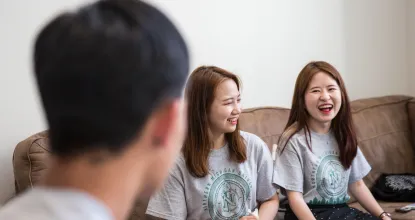CPT or curricular practical training is defined as alternative work/study, internship, cooperative education or any other type of internship or practicum that is offered by sponsoring employers. Students who have completed two full time semesters at NMU are eligible to request CPT authorization. The International Programs Office must authorize CPT in SEVIS and issue a new I-20 with CPT authorization. Students may only begin CPT after receiving their new I-20 and then may work within the approved CPT dates.
NMU Guidelines for CPT Eligibility
- Must maintain valid F-1 status for at least one academic year.
- Student must have a signed, written offer of employment from their employer prior to requesting CPT.
- Part-time CPT is defined as working 20 hours or fewer per week and does not affect OPT eligibility.
- Full-time CPT is defined as working more than 20 hours per week. If the student accumulates 12 months or more of full-time CPT authorization, they will NOT be eligible for OPT at that educational level.
- If the student changes employers while on CPT, they will need to file a new CPT authorization request. CPT is employer specific, so they can only work for the employer listed on their current I-20.
- CPT is authorized for specific dates of employment on the I-20. Students may NOT begin working prior to the listed start date and may NOT continue working after the listed end date.
- IPO cannot authorize CPT with a start date in the past.
- IPO will only authorize CPT for one semester at a time unless the student is in a required internship program that extends beyond the semester.
- CPT authorization is required for both paid and unpaid internships or practical work experience.
- CPT authorization must be obtained for every co-op, internship, practicum, clinical rotation of other approved experiential learning opportunity.
- CPT work can begin only after receiving the I-20 with CPT authorization and within valid employment dates.
Types of CPT at NMU
Steps for Requesting OPT Authorization
1. Student and their academic advisor or the Department Head will complete the CPT Application.
2. Student will secure a job offer and obtain a letter from their employer with required information. SAMPLE LETTER
3. Student will bring the CPT application and employer letter to the International Programs Office to formally authorize participation in CPT.
4. The IPO will check Banner to ensure that the student is enrolled in the appropriate internship credits.
5. After reviewing all documents and all parameters of CPT with the students, the IPO will authorize CPT and create a new I-20 for the student.
Information needed for authorizing CPT in SEVIS
- Employment start and end dates
- Full or Part time
- Employer Name
- Employer Address
- An 3-4 sentences explanation of how the CPT is curricular
- Student remarks to appear on the I-20
The Impact of CPT on OPT
If an F-1 student exceeds 364 days of full-time CPT (more than 20 hours per week at a degree level—bachelor’s, master’s or doctorate), they will lose their eligibility to apply for OPT at that degree level.
- When counting CPT days, every day between the start and end date of CPT counts (including the start and end dates). The days that are counted are the days that the student had authorization, not the days the student actually worked. This means even if it was a weekend, holiday, vacation etc., it still counts if the student had CPT authorization.
It is the responsibility of the student to track of how many full-time CPT days have been used per degree level. Students can use previously issued I-20s to document this. Part-time CPT (20 hours per week or less) does not accrue time towards the 364-day calculation. Students who require more than 364 days of full-time CPT at a degree level to complete their degree program are not in violation of their F-1 status, however they will lose OPT eligibility for the same degree level.
